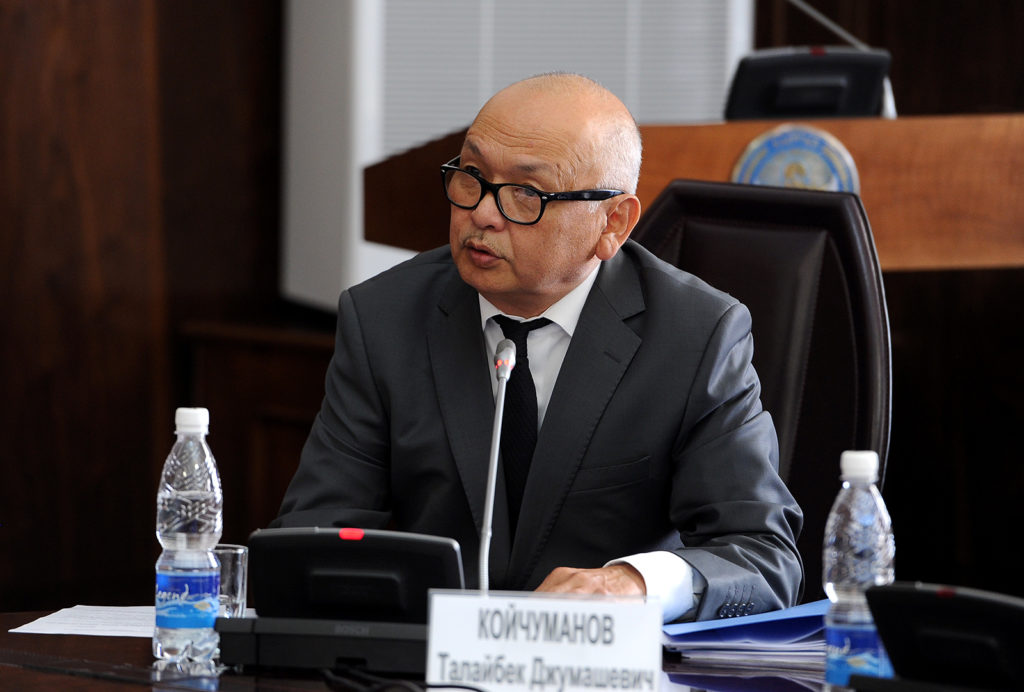Absent a consistent partnership with the private sector, the state risks being perceived as hostile by the populace, and even the most reasonable and justified government initiatives may be met with widespread resentment. As we’ve observed first-hand, this can lead to a scenario like the one in Kyrgyzstan, where public distrust in the government is rampant. Actions such as tax evasion, draft dodging, and traffic rule violations aren’t viewed as unlawful by the society and often even garner approval.
There are several principles of PPD, inspired by global best practices, which the state must adhere to for a successful dialogue. The World Bank experts highlight the following significant principles:
1. Limit the number of participants to maintain an actual dialogue instead of a mere participation. For instance, a meeting with hundreds of individuals addressed by the President or Prime Minister, which our authorities often represent as public dialogue, isn’t an authentic PPD. There must be an equal number of participants from both sides.
2. Public participants in PPD should be chosen transparently and based on publicly understandable criteria.
3. The dialogue must yield practical results.
4. Set up effective working components like working groups and expert panels to devise practical measures and oversee their implementation.
5. Facilitators with specific qualifications, diplomatic skills, and a comprehensive understanding of macro and micro-level problems are essential for the dialogue process. Typically, these roles are fulfilled by executive body employees.
6. Participation from leaders on both sides (state and business) must be guaranteed. Interactions with ordinary officials who can’t make decisions are not considered PPD. Community members should also represent wider community groups.
7. Periodic rotation is necessary to ensure democracy and broad participation.
8. PPD should not supplant state bodies; it is a platform for discussing issues.
The Business Development and Investment Council under the Government of the Kyrgyz Republic (hereinafter referred to as the Investment Council) serves as a model platform for implementing PPD in business operations. During its inception, we evaluated and addressed the shortcomings of previous PPD platforms. Our initial step was to exclude representatives of individual, particularly large, businesses from the Council to prevent lobbying for specific enterprises. Furthermore, we increased the involvement of business association representatives to cover all significant sectors of the national economy as extensively as possible. We shifted focus from extensive programs to specific business association initiatives, as the results of such initiatives are instantly noticeable. As a result of the Council’s initiatives, Kyrgyzstan climbed in the World Bank’s Doing Business rankings, rising from 98th to 46th place over two years of reforms (2008−2009).
The Investment Council is chaired by the Prime Minister of the Kyrgyz Republic, in line with the constitution approved in a referendum on June 27, 2010, which assigns the government extensive powers to shape economic policy.
To ensure broad business representation and uphold democratic principles, we’ve eliminated restrictions on industry topics in the Council’s activities and introduced the principle of non-fixed business association membership. This means any business association can apply to join the Council. In 2010, the Council consisted of only eight business associations representing tourism, trade, mining, and light industries. By 2019, the Council had expanded to include 66 business associations from all sectors of the economy.
Investment Council meetings are conducted quarterly. Business community representatives can approach the Council’s Secretariat with requests for prompt resolution of urgent issues. Consequently, we modified the Council’s regulations, empowering the Secretary of the Council to promptly address business matters by requesting relevant state bodies to create expert groups for swift problem resolution. Council members can now approach state bodies for necessary information to support the Council’s work.
Despite many changes — including a revolution, constitutional amendments, numerous government turnovers, and changes in the chairmanship of the Investment Council — the Council has remained operational, demonstrating its effectiveness to the business community and highlighting its resilience. The key performance indicators include the number of business community-initiated proposals considered at Council meetings (100%) and the rate of decision implementation (target: 75%). These targets have consistently been met.
The Investment Council’s most significant achievements include regulatory changes leading to a reduction in the number of inspections, licenses, permits, and simplification of tax and customs administration, as well as support for specific industries. Naturally, there were government attempts to limit the dialogue’s scope, trying to convert the Council into an expert group within the government and eliminate direct dialogue between business and the nation’s top leadership. Some businesspeople, noticing this, sought to establish an alternative to the Council, citing the need for more focus on current business issues. Nevertheless, we managed to maintain the platform’s fundamental principles. Minor innovations included intensifying work on current issues between meetings and holding additional off-site thematic meetings.
PPP procedures play a crucial role in enhancing the efficiency of the Investment Council. Several significant procedures have been proposed to elevate the Council’s effectiveness, without which the Council risked becoming another platform devoid of effective mechanisms.
We proposed several measures:
• A report from the Council’s Secretary detailing the execution of previous Council decisions. This approach enforces discipline among participants and raises the question — is there any point in holding a new meeting if the previous decisions have not been implemented?
• The meeting minutes are signed by both the Government Chairman and the Council Secretary. This measure underscores the importance of the decisions made, with the document signed by the council chair and the government head.
• The Council’s Secretariat commits to preparing business issues not addressed by the government at Investment Council meetings. Meetings are conducted with government agencies and businesses alike. Experts are consulted, and a draft decision is prepared collaboratively for Investment Council consideration. A business proposal may be accepted or rejected during Council meeting deliberation. Hence, it’s crucial to prepare a robust solution and discuss any arising questions in advance from both sides. The principle of consideration at the meeting is clear: the state body must either provide a reasoned refusal or accept the business proposal. Thorough preparation yields good results: 75% of business recommendations are implemented. During the Investment Council’s tenure, over 50 laws and other regulatory legal documents have been enacted at the behest of businesses.
• Joint monitoring of decisions by the Government Office staff and Secretariat experts. The head of the government apparatus signs the decision implementation monitoring table from the Council meeting. This table outlines the decisions made, specific deadlines, and responsible executors. The government apparatus circulates this table to government agencies with instructions to provide monthly progress reports.
These procedures have helped us achieve high performance indicators, attracting business attention to the platform.
Innovations in the Investment Council’s work and its Secretariat also extend to other aspects of the PPD platform, including the rotational principle of work of international partners. The Donor Council established in the country unites international partners, and our procedures specify only the number of participants from the Donor Council — two representatives, one from bilateral international organizations and one from multilateral international organizations, rotating every 3–4 meetings.
Another innovation involves the selection of business proposals for consideration at Investment Council meetings. The Investment Council reviews issues affecting multiple enterprises, a sector, an industry, or the entire economy.
Our Investment Council is pioneering an approach to annual work planning. Starting in early autumn, we host off-site roundtables with a diverse group of partners, including businesses, government officials, parliament members, local authorities, and international partners. These discussions allow us to freely address pressing issues related to enhancing the country’s business environment. The ideas generated from these roundtables are refined by experts, and the draft annual agenda of the Investment Council is circulated among our partners for feedback and adjustments. By year’s end, the final agenda is presented for approval to the Investment Council members. This agenda remains flexible, allowing for the addition of urgent matters raised by the business community throughout the year.
When it comes to evaluating the Investment Council’s performance, international indicators play a crucial role for foreign investors seeking opportunities in unfamiliar territories. They often rely on global ratings reflecting business environment, competitiveness, economic freedom, among others. We diligently track these ratings and examine the potential impact of our decisions on them. For instance, the 2018 enactment of the High Technology Park law, aimed at supporting export-oriented IT companies, propelled us to the 35th spot in the Global Innovation Index. A similar outcome was achieved with the passage of the public-private partnership law. Although these successes are currently limited, we are optimistic that targeted efforts to enhance the investment climate and the government’s political will could yield positive results soon. Specifically, we are eyeing improvements in the World Bank’s Doing Business rating, which, after a period of decline due to the 2010 revolution and ensuing instability, has recently shown signs of recovery.
The Investment Council’s remit includes refining business-related legislation. We have identified several key areas of economic activity for this purpose:
— Oversight of businesses by regulatory authorities;
— Licensing systems;
— Customs regulations;
— Tax administration;
— Corporate governance and anti-corruption measures;
— Protection of entrepreneurs» rights.
The Investment Council refrains from interfering with the responsibilities of state bodies concerning the determination of contributions, taxes, and payments. Our main objective is to enhance administrative efficiency – simplifying legislation, removing business barriers, eliminating redundancy in government operations, reducing unnecessary inspections, streamlining licenses and permits, ensuring transparency in government activities, and engaging businesses in the decision-making process.
Talaibek Koichumanov, Kuban Ashirkulov





